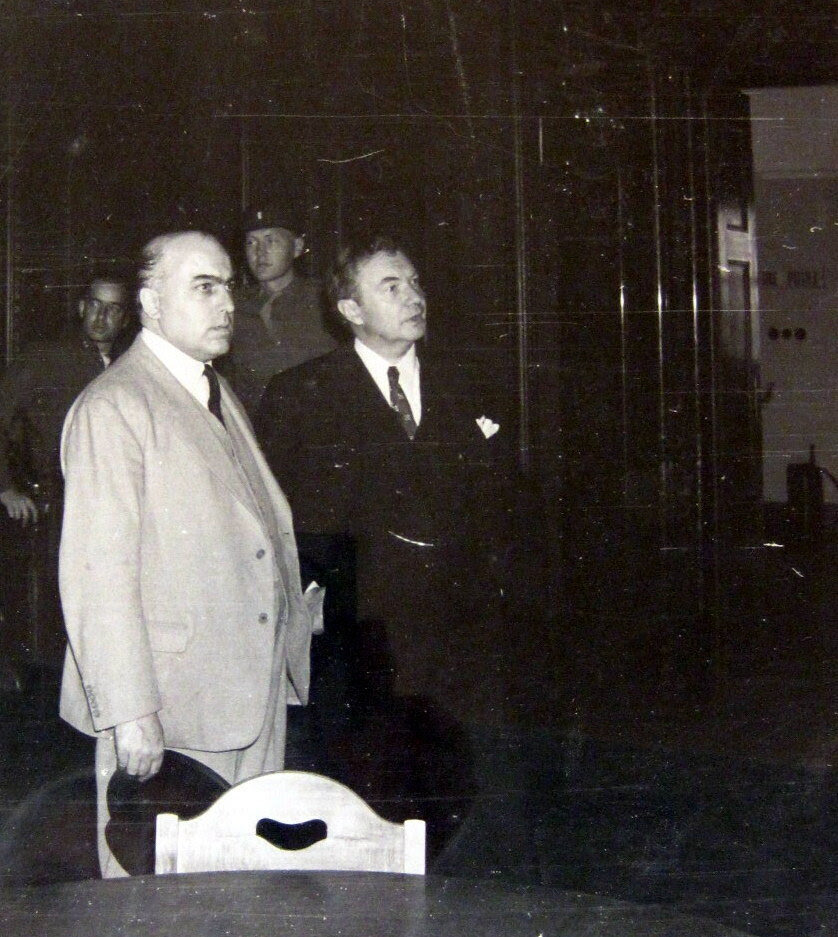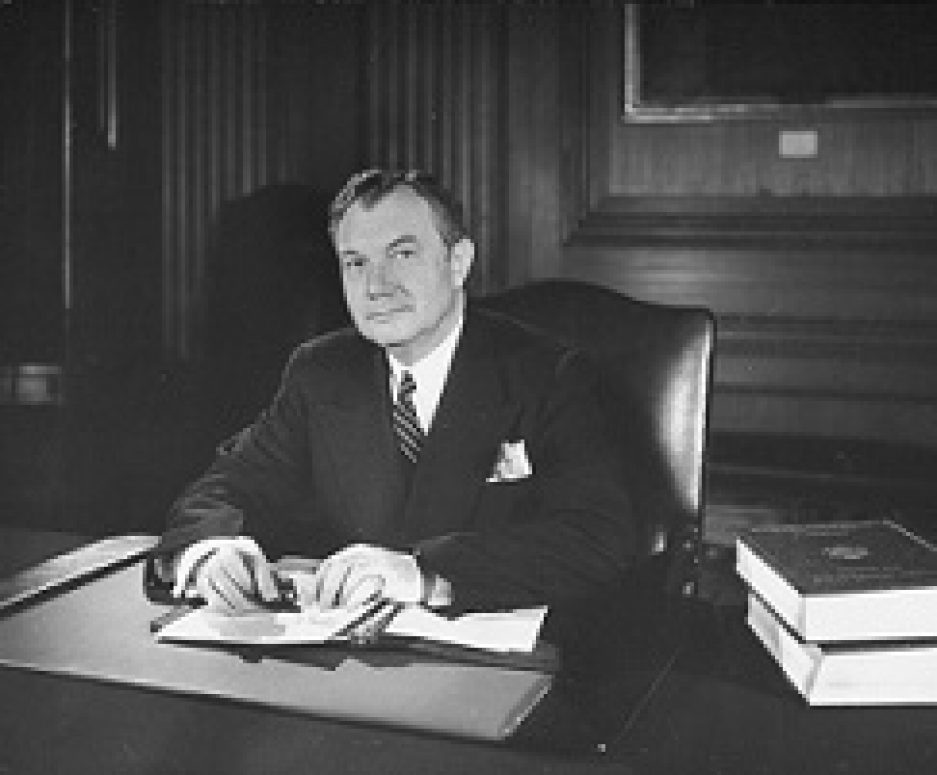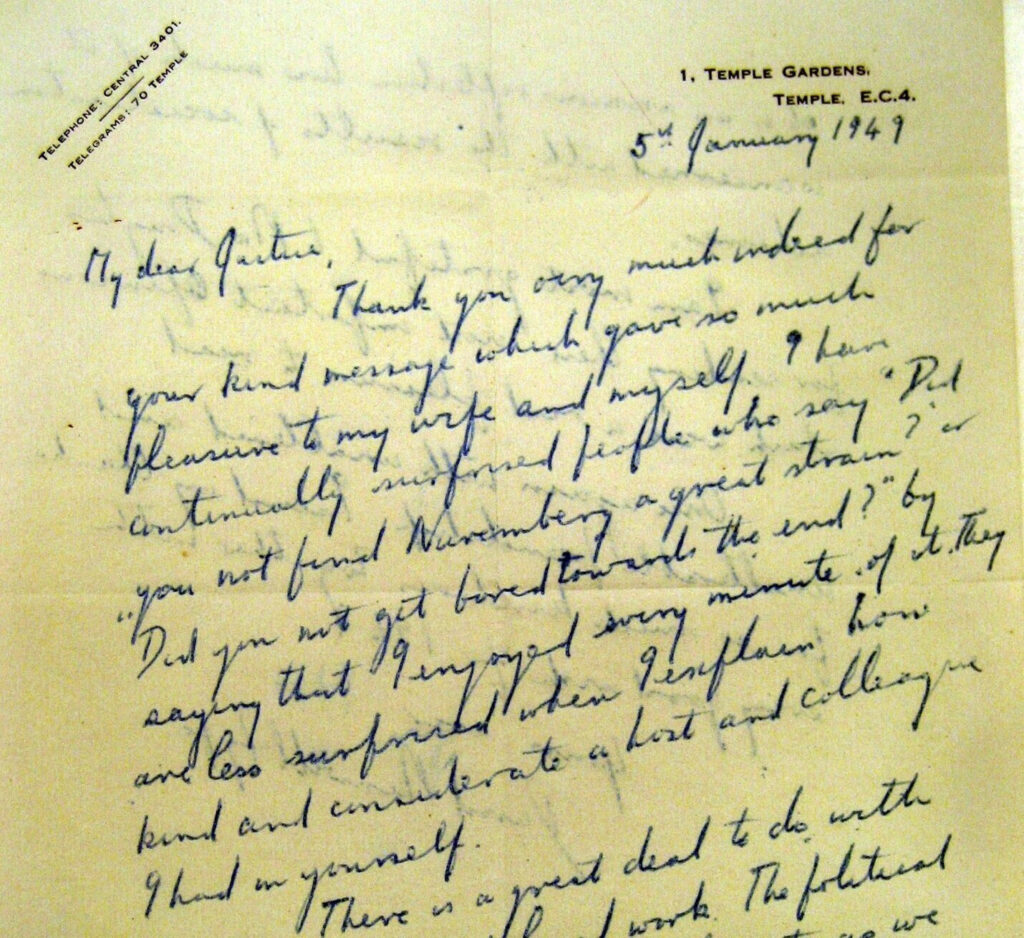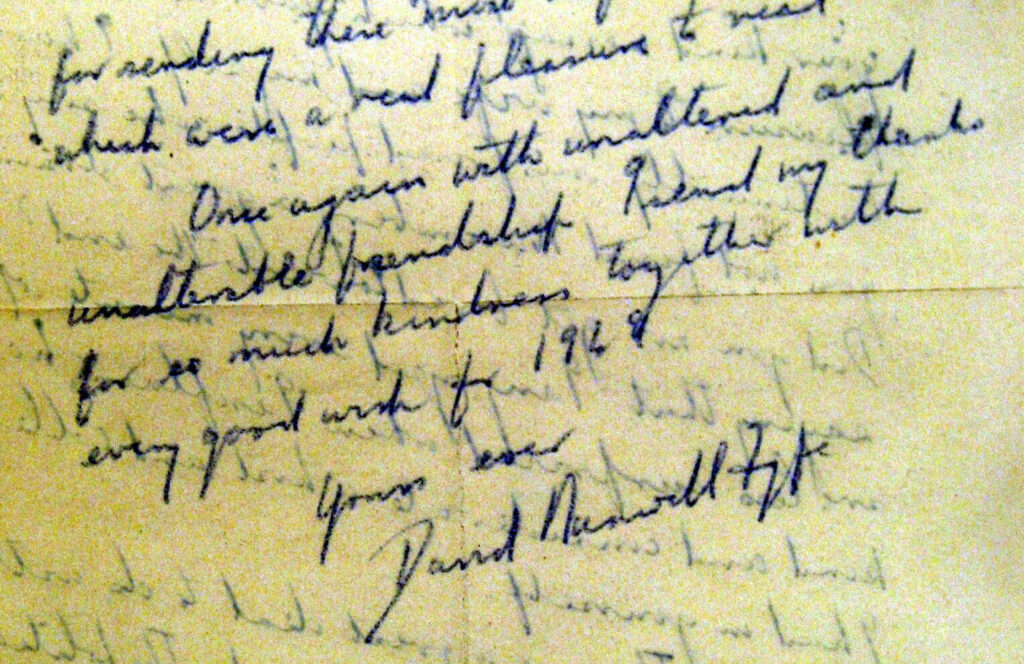During Justice Robert H. Jackson’s 1945-1946 service as United States Chief of Counsel prosecuting Nazi war criminals before the International Military Tribunal at Nuremberg, his United Kingdom counterpart chief prosecutor was Attorney General Hartley Shawcross. But because Shawcross was serving in the new British government, his principal responsibilities during that year were in London, not Nuremberg; he spent significant but quantitatively little time in Nuremberg.
At the Nuremberg trial, U.K. prosecution team leadership, administration, and significant courtroom work was handled by Shawcross’s deputy, Sir David Maxwell Fyfe. He was an experienced barrister who formerly had been a member of Parliament, Solicitor-General in the wartime unity government, and then Attorney-General in Churchill’s caretaker government following Nazi Germany’s May 1945 surrender. Maxwell Fyfe lost his seat in Parliament in the July 1945 elections. His next job, full time, was serving as U.K. lead prosecutor in Nuremberg.

During the planning and then the prosecution of the Nuremberg trial, Justice Robert Jackson and Sir David Maxwell Fyfe worked together closely and became friends. They stayed in touch after each returned to national government service in Fall 1946.
* * *
In December 1948, Justice Jackson, at the U.S. Supreme Court, wrote to Sir David Maxwell Fyfe in London. He had been reelected to Parliament and also was actively, prominently practicing law. Jackson sent Fyfe two of Jackson’s recent Supreme Court opinions, an update that the U.S. government’s publication of Nuremberg-related proceedings was nearing completion, and good wishes: “We often speak of you and send best Christmas wishes to you and Lady Fyfe.”
On January 5, 1949, Maxwell Fyfe penned and mailed a letter back to Jackson. It contained affectionate memories of their Nuremberg endeavors:
My dear Justice,
Thank you very much indeed for your kind message which gave so much pleasure to my wife and myself. I have continually informed people who say “Did you not find Nuremberg great strain?” or “Did you not get bored toward the end?” by saying that I enjoyed every minute of it. They are less surprised when I explain how kind and considerate a host and colleague I had in yourself.
…
Once again with unaltered and unalterable friendship, I send my thanks for so much kindness together with every good wish for 1949.
Yours ever
David Maxwell Fyfe
As we today, seventy-six years later, move into a year that will require hard, good work, I hope that this correspondence gives you a little lift, and that you have allies, colleagues, and friends like Jackson and Maxwell Fyfe had in each other.


